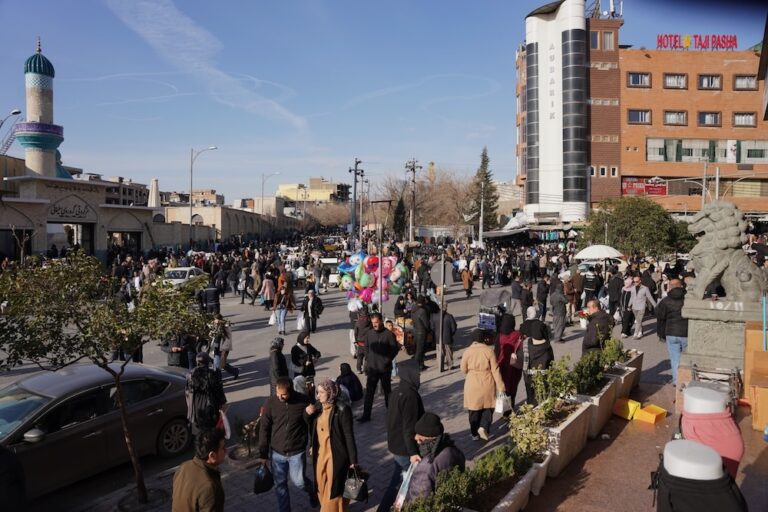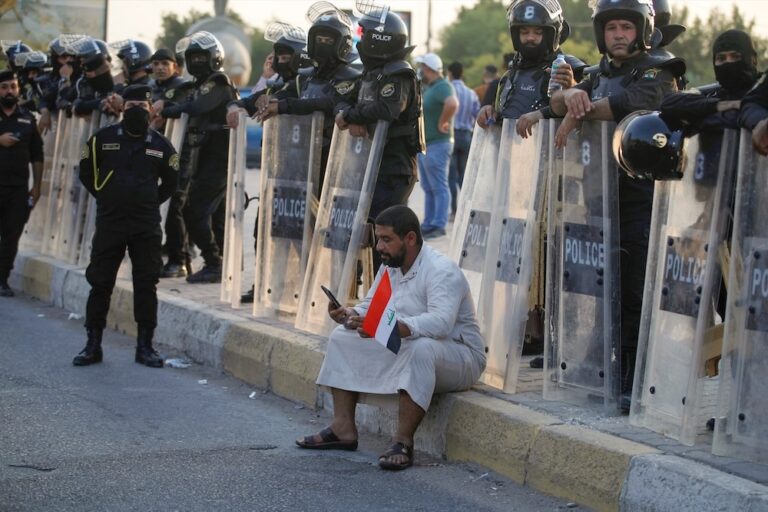In an alarming statement, senior interior ministry official Adnan Al-Asadi stated that freedom of information could now pose "a threat to internal security" in the country, and that journalists must no longer publish information about murders or arrests without the ministry's consent because of the fragile security situation.
(RSF/IFEX) – 4 August 2011 – Reporters Without Borders is concerned about the repeated harassment of media personnel, especially TV crews, by the Iraqi security forces. Physical attacks on journalists, confiscation of their material and orders preventing them from working are all common despite Reporters Without Borders’ appeals to the Iraqi government.
The press freedom organization is also very alarmed to learn that a senior interior ministry official, Adnan Al-Asadi, said on 31 July that freedom of information could now pose “a threat to internal security” in Iraq. Journalists must no longer publish information about murders or arrests without the ministry’s consent because of the fragile security situation in Iraq, he said.
This official’s statement confirms Reporters Without Borders’ growing concern about a deterioration in the media’s ability to operate freely in Iraq.
In one of the most recent incidents, the security forces detained Salaheddeen TV cameraman Haidar Abid Hassan on 28 July in Tikrit, 185 km north of Baghdad, while he was covering an explosion in the city centre that killed 15 people and wounded around 40 others. He was forcibly taken to a military vehicle and beaten by soldiers. Then he was subjected to psychological harassment in connection with his work as a journalist. Many other journalists were attacked by the security forces that day.
While covering a demonstration in Baghdad’s Tahrir Square on 22 July, photographer Saad Allah Al-Khaledi was detained by members of the security forces, who forced him into a car, beat him and threatened him with a gun against his head.
He told the Journalism Freedom Observatory, the Reporters Without Borders partner organization in Iraq, that at one point, when he was blindfolded and his hands were tied, he heard one of his captors say: “Move away from him so that you don’t get blood on you when I shoot him in the head.”
Security forces attacked a crew working for the Al-Baghdadiya TV programme “Sabahak ya Iraq” on 17 July, destroying their generator and injuring the soundman. Four days prior, on 13 July, an Al-Babliya TV crew was attacked and insulted by members of the security forces in front of witnesses while doing a report in Zawra Park, in the centre of Baghdad.
Without giving any reason, the authorities also banned the media from meeting victims and relatives of victims of the double suicide bombing on 4 July near the Hotel Rashid.
Reporters Without Borders takes note of Prime Minister Nouri Al-Maliki’s decision to rescind the Broadcasting Security Council’s dismissal of Abd Al-Satar Al-Baydani as editor of the newspaper Al-Sabah, a position he had held since March. He was fired for getting the facts wrong in a report about relations between Iraq and Kuwait.


